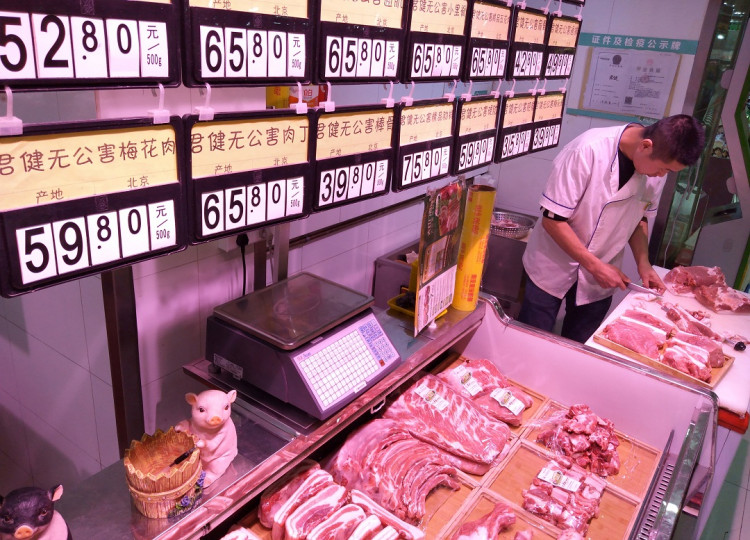Newly data published by China's Ministry of Agriculture and Rural Affairs on Tuesday suggests a slight recovery in the country's stock of hogs. China's stock of hogs rebounded for November, a trend that is expected to continue in the coming months as the industry slowly recovered from the devastation brought about the African swine fever epidemic.
According to the Ministry, hog stocks increased by 2 percent in November when compared to the previous month. This marked the first month-on-month increase in hog stocks since November of last year.
The ministry's Animal Husbandry and Veterinary Department also revealed that the number of breeding sows in stock across the country's farms has increased by 4 percent when compared to the previous month. Department official Wang Junxun stated at a news conference that the data shows that the decline in China's hog production is now slowly reversing.
Hog stocks last month across 18 provincial areas in mid-sized farms, typically those capable of producing more than 5,000 pigs, showed a 1.9 percent increase when compared to the previous month. The increase in stock also coincides with the increase in production of pig feed in November, which increased by around 6.9 percent when compared to the production in October. This further indicates the gradual restoration of pig production in China, the department stated.
As the production slowly recovers and the country boosts its imports of hogs from overseas, pork prices have slowly declined over the past weeks. Over the last week of November, pork prices averaged at around 51 yuan or $7.30 per kilogram. This was a 12.6 percent decreased when compared to the pork prices in October.
While the data may indicate the slow recovery of hog stocks across the country, there are still some concerns over immediate supply. Stocks typically take around six months before they can be sold, which means that it might still be a while before actual supplies increase. This is particularly concerning given the expected increase in demand for pork this holiday season as the increase in pork availability in the market is expected to happen in the middle of next year.
The department pointed out that pork supply during the Spring Festival holiday season could remain tight. The festival, which falls in late January, is typically the peak of China's pork consumption. Fortunately, it was pointed out that China has significantly increased its supply of other meats outside of pork such as mutton, beef, and poultry. The increased supply is expected to balance the meat supply to meet the expected demand.






